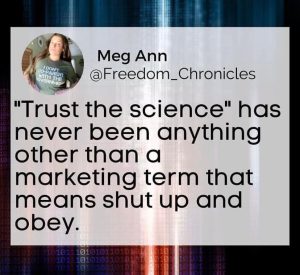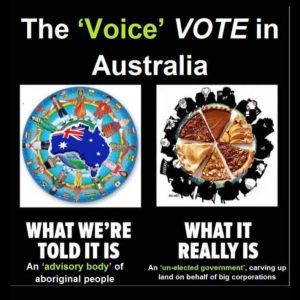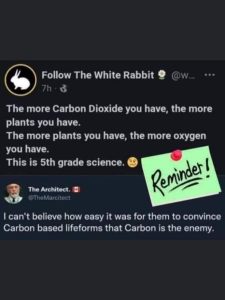Trust The Science

A 10-point primer on why the mRNA Covid shots are different from and riskier than other vaccines
without further ado, here are 10 crucial facts about the mRNAs – the Covid shots from Pfizer and Moderna, the only jabs in wide circulation in the United States. The list is essentially chronological, from concept through trial to widespread use.
https://alexberenson.substack.com/p/a-10-point-primer-on-why-the-mrna
Growing Doubt: a Scientist’s Experience of GMOs

Some of my concerns with GMOs are “just” practical ones. I have read numerous GMO risk assessment applications. These are the documents that governments rely on to ‘prove’ their safety. Though these documents are quite long and quite complex, their length is misleading in that they primarily ask (and answer) trivial questions. Furthermore, the experiments described within them are often very inadequate and sloppily executed. Scientific controls are often missing, procedures and reagents are badly described, and the results are often ambiguous or uninterpretable. I do not believe that this ambiguity and apparent incompetence is accidental. It is common, for example, for multinational corporations, whose labs have the latest equipment, to use outdated methodologies. When the results show what the applicants want, nothing is said. But when the results are inconvenient, and raise red flags, they blame the limitations of the antiquated method. This bulletproof logic, in which applicants claim safety no matter what the data shows, or how badly the experiment was performed, is routine in formal GMO risk assessment.
To any honest observer, reading these applications is bound to raise profound and disturbing questions: about the trustworthiness of the applicants and equally of the regulators. They are impossible to reconcile with a functional regulatory system capable of protecting the public.
https://www.independentsciencenews.org/health/growing-doubt-a-scientists-experience-of-gmos/
The Voice – What We Are Told vs What It Is

Ignorance Is The Enemy, Not Carbon!

